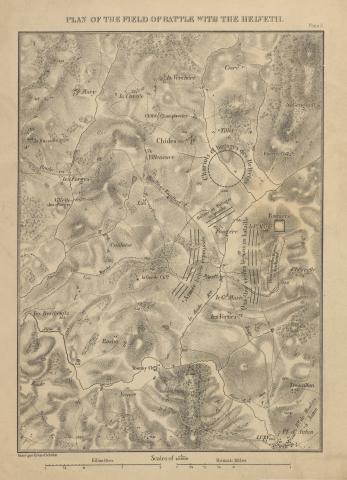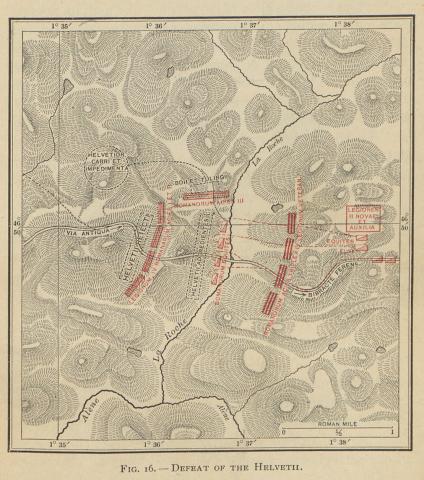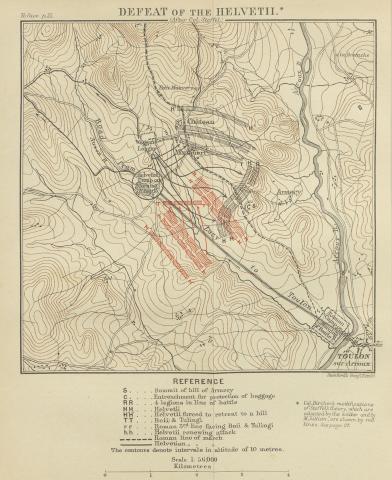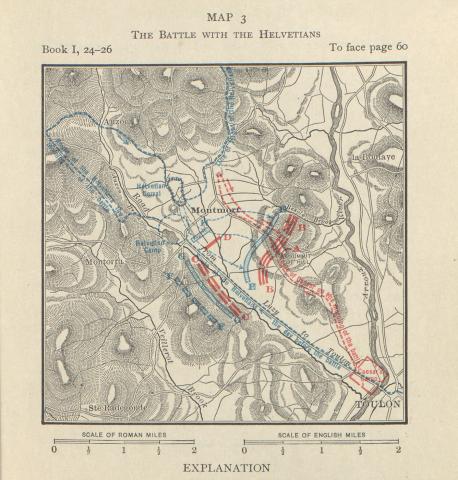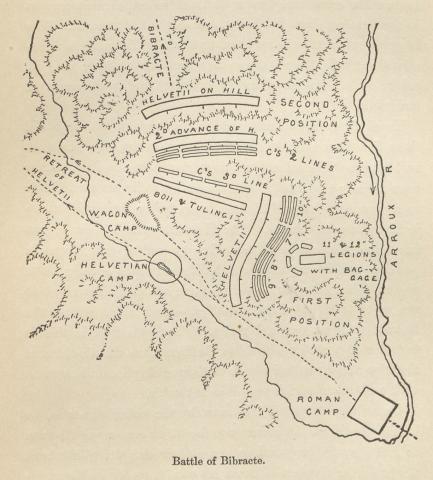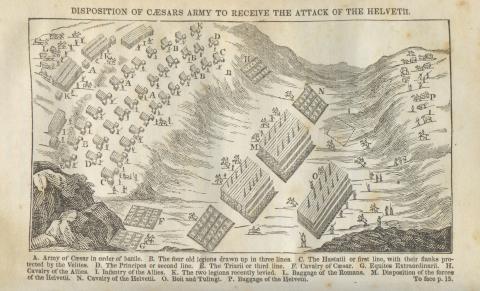inopia, -ae f.: lack, need, scarcity; poverty, destitution.
dēditiō, -ōnis f.: surrender, capitulation; in dēditiōnem accipere, accept the surrender of, receive in surrender; in dēditiōnem venīre, surrender.
prōiciō, -icere, -iēcī, -iectus: hurl forward, throw, throw down; abandon, reject; sē prōicere, prostrate oneself; hurl oneself, leap.
suppliciter: adv., suppliantly, humbly.
adventus, -ūs m.: arrival, coming, approach.
obses, -sidis m. and f.: hostage.
perfugiō, -fugere, -fūgī: flee for refuge, go over, escape, desert.
conquīrō, -quīrere, -quīsīvī, -quīsītus: seek for, hunt up; bring together, procure.
intermittō, -mittere, -mīsī, -missus: let go between, leave between; omit, stop, leave, leave off; leave vacant; allow to intervene; neglect; interrupt, separate; intermissō spatiō, at a distance, after an interval.
circiter: (1) adv., about, nearly; (2) prep. with acc., about, around, near.
sex (vi): indecl. adj., six.
pāgus, -ī, m.: district, canton; people of a canton.
Verbigenus, -ī, m.: Verbigenus, the name of a canton of the Helvetii.
perterreō, -terrēre, -terruī, -territus: frighten thoroughly, fill with terror; perterritus, -a, -um, panic-stricken.
indūcō, -dūcere, -dūxī, -ductus: lead in; induce, influence; pellibus indūcere, cover with skins.
quod: conj., that, in that, because, since; as to the fact that: the fact that.
dēditīcius, -a, -um: surrendered; as subst., m. pl., prisoners of war, captives.
occultō, -āre, -āvī, -ātus: hide, conceal.
omnīnō: adv., wholly, entirely, utterly; in all; only; at all.
ignōrō, -āre, -āvī, -ātus: not know, be ignorant of, misunderstand; nōn ignōrāns, knowing well.
Rhēnus, -ī, m.: the Rhine, a large river forming the boundary between Gaul and Germany.
Germānus, -ī, m.: a German; pl., the Germans; as adj., Germānus, -a, -um, German
contendō, -tendere, -tendī, -tentus: strain, exert oneself; strive for, attempt, try; hasten, press forward; contend, vie; join battle, fight, quarrel; insist; demand.

